|
It’s a brave new world out there - foreign to every single one of us, but we have to carry on with life, and also looking after our bees, in the best way that we can, while being mindful of our safety, and that of those around us. For those new to the craft, it is going to be even harder, as learning first hand is not going to be easy, or perhaps, even possible.
The same applies to my new position as chairman of the Association. Anne Pike has done an admirable job over the last three years, and her contribution as chairman will be remembered and valued for years to come. She hasn’t run away screaming, as she claimed she was going to, but is still with us, acting in a promotional role, and will be looking after the website, among many other things. I know quite a few of our members, but there are many that I have yet to meet, and who have no idea who I am. Well, here’s a little insight. I hail from Bath, and spent a lot of the 1960s enthralled by and involved with the music of the time. After spending 17 years involved with sales of construction materials to the unsuspecting architects of the South West, I spread my wings and headed for Saudi Arabia, where I actually sold sand to the Arabs, admittedly in the form of lightweight concrete, but on my return, the UK had gone into recession, and construction was particularly badly hit. I did what any red-blooded male would do, and diversified. A friend was running a woodworking business that needed a little help, so I invested, and used my sales skills to put the business on the tracks. He bailed out about three years down the road, and so I carried it on with my slowly improving woodworking skills, and a small group of cabinet makers. That worked well until 2008, when I realised that something was amiss, my energy levels had dropped severely, and small items were slipping out of my grasp without me knowing. I was diagnosed with Multiple Sclerosis. Again, I did what I thought best, shed the business, retired and took up beekeeping. It’s been a great distraction, and has helped by making me plough on through physical difficulties. At one point I had 12 colonies running, but have now reduced that to six. I joined the committee of Somerton Division in 2010, and took over their newsletter the same year, before also taking on the county newsletter and yearbook. Gerald Fisher, who had run the Beginners’ course for many a year, wanted to hand over the reins, and being a total glutton for punishment, I took that on about eight years ago, and now run it in tandem with Joe King. I shed the Somerset newsletter and yearbook when elected chairman of Somerton Division. During my three year tenure we managed to acquire ¾ acre land in Long Sutton, as the result of a generous gift, and with help from the county and a few small grants, converted that piece of ‘filled quarry wasteland’ into an apiary with wildflower meadow and an apiary building, with car parking for 30 cars. I had been a Somerton deputy county delegate for several years before being elected vice chairman three years ago, and at this year’s virtual AGM, became chairman. It’s not going to be easy, but I aim to draw the divisions closer, so that we can function more as a single entity, and get together (albeit virtually at present) with more combined events. The ones that we have work so well. The Lecture Day and Special Lectures are praised highly. The Special Lecture, being an evening event has been slightly hampered by the distance that a lot of members would have to travel, for a two hour session, only to drive back again the same evening. The lock down has caused lateral thinking, and Lynne Ingram of Taunton Division has gained us Educational Status with Zoom, which for those who have no experience of it, is a free to use, online conferencing facility, so that we can have mass audiences for virtual lectures. The virtual Special Lecture on April 23rd attracted applications from over 200 members, kick-starting a repeat, which Ken Basterfield was only too delighted to accommodate. There are live Q & A sessions afterwards too. Further talks are coming up, with excellent guest speakers, and topics relevant to the moment. What’s more, they can be enjoyed from the comfort of your armchair. There is, however, nothing quite like being in the presence of the speaker in real time. You wouldn’t consider watching a music concert on your computer to be the same as actually going to the concert, would you? But in a slightly bizarre way, we can turn this situation to advantage, and gain some knowledge at the same time. See you at the next Zoom session. Stewart Goud We’ve teamed up with Ken Basterfield to bring you our annual Special Lecture as a webinar at 7.30pm on Wednesday, April 22.
Ken will be talking about processing beeswax, from cleaning through to making foundation and lots more besides. Originally he was booked to give his lecture at Edgar Hall at the same time but, of course, those plans have had to be abandoned. The Zoom webinar is FREE but you must register on Eventbrite to receive the instructions to join in. Places are limited – so book now! Please note: All refreshments are self-service! Make sure you have tea and biscuits ready, or a glass of something stronger! Somerset BKA has awarded its most prestigious honour to Fred Horne from Yeovil Division.
The West Country Honey Farms Award is presented annually to the Somerset member judged by a panel of three previous winners to have made the greatest contribution to beekeeping in the county. Up until now the award has been presented at the AGM but Fred is having to make-do with a photo of the trophy until COVID-19 restrictions are lifted. Fred, who first opened a hive in 1952, is a former Vice Chairman of Somerset BKA (1985-86), served as Chairman (1987-1989), is a Vice President (elected in 1990) and an Honorary Member since 2010. He has been an active member of Yeovil Division since he joined in 1976 (when it was known as the Southern Division). Within two years he became Treasurer, holding the post for three years before taking on the role of Secretary for a further seven years. He has been a valued and loyal member of his Divisional Committee for almost the entire period of his membership. His most recent office was that of Divisional President (1999-2017). In the citation for nomination it says: “For all the current membership Fred has always been there. Modest in mind and the epitome of a skillful mentor, Fred offers a master class example of how to communicate. Good mentors, like good teachers, are rare to find but he certainly fits the category well. His empirical knowledge of bees, inspires, encourages and motivates. Not one for gaining qualifications and post nominals, Fred made you think logically, rationally and reminded us that bees are doing what they want to do (usually for good reason) and that we need sometimes to just watch and listen and sometimes leave them to it. Fred, like some other rare individuals, has clearly mastered the art of communicating during his career as a teacher and is able to effectively impart his knowledge at a level commensurate to both the individual and the complexity of the question. “Many of the Division's new members now realise the value of having Fred as their mentor and have appreciated the knowledge and passion that he has been able to transfer. Many inexperienced beekeepers have learned much, and more importantly, limited the potential damage that could have been done to their precious bees by seeking his counsil. By having this sound knowledge base available, either in person, or at the end of a telephone, their beekeeping has improved considerably. “To quote a relatively new member: "It has been a privilege to know and seek the President's advice at times when apiculture was proving demanding and each and every time his wise and thoughtful words made sense and clarified the mire. The value and importance of a skilled mentor should never be underestimated". “Fred stopped keeping his own bees a few years ago and has now stepped down as Divisional President. However, he has not really retired as he is still available to provide advice to the less knowledgeable and experienced members of the Division.” Due to the exceptional circumstances connected to COVID-19, this year’s AGM was conducted through an online and postal vote; the following members will be taking the Association forward in the coming year.
President: Jackie Mosedale Vice Presidents: M Barnes-Gorell, M Blake, S Blake, C Butter, AD Charles, K Edwards, G Fisher, F Horne, A Morrice, D Morris, J Mosedale, S Perkins, N Trood, J Friend, AK Tredgett Chairman: Stewart Gould Vice Chairman: vacancy Secretary: Elizabeth Friend Treasurer: John Smales-Cresswell Executive Committee: Chair, Secretary, Treasurer, Cathy Edge, Sharon Blake, Bridget Knutson AHAT Coordinator: Lynne Ingram Archivist: David Charles BBKA Delegate: Richard Bache BDI Delegate: Suzette Perkins Bee Diagnostic Officers: Simon Jones and others Education Officer: Richard Bache Education Support Group: Alan Nelson, Tricia Nelson, Bridget Knutson, Lynne Ingram Examinations Secretary: Bridget Knutson Gift Aid Secretary: Rosemary Brooks Membership Secretary: Alison Dykes National Honey Show Delegates: Suzette Perkins, Neil Trood, David Charles, Mark Gullick Newsletter Editor: Elizabeth Friend Publicity Officer: Anne Pike Spray Liaison Officer: Chris Harries SWBKF Representatives: Stewart Gould, Sharon Blake, Richard Bache (deputy) Webmaster: Neil Cook Yearbook Advertising Manager: Alex Morrice Yearbook Editor: Bridget Knutson South West Asian hornet action teams are launching an Asian Hornet Spring Watch publicity campaign over Easter. They are calling on the public to get involved.
Somerset’s AHAT coordinator Lynne Ingram said: “Lockdown means that people will be spending more time in their gardens and on walks around their neighbourhood this Easter. “We would like people to look for Asian hornets on flowers such as camellias, trees that ooze sap and in sheltered spots like sheds and porches while keeping within government guidelines in relation to Covid-19.” Asian hornets have distinctive orange faces and yellow tipped legs and are smaller than the bright yellow striped European hornet. “If anyone sees an insect they think is an Asian hornet, check it out on the Asian Hornet Watch app which has an identification guide and lets you send in your sightings.” Beekeepers and conservationists hope to mobilise support from all over the region to prevent the destructive insects getting established in the UK where they will decimate populations of pollinating insects and honeybees. “Given the many pressures on our precious pollinators, including climate change, habitat destruction and pesticide use, it’s vital we do all we can to support them by reporting sightings.” Somerset Beekeepers’ Association has many useful ID materials on its website including a children’s colouring-in sheet. https://www.somersetbeekeepers.org.uk/resources.html Asian hornets are a notifiable invasive species and should be reported immediately, preferably with a photo using:
Ends Notes to editors: Asian hornets (Vespa velutina nigrithorax) are slightly smaller than native European hornets and look like large black wasps with an orange face and yellow legs:
A single Asian hornet can kill 50 bees a day, with a nest containing up to 6,000 workers and up to 350 queens. In Jersey, France and large areas of Western Europe they are stripping the environment bare of insects before moving on to prey on managed honeybee colonies. Asian hornets are a notifiable invasive species and should be reported immediately with photo using:
Somerset BKA's Asian hornet action team co-ordinator Lynne Ingram is urging us all to start monitoring for Asian hornets:
"We're approaching the time when Asian hornet queens will be emerging from hibernation – when the temperature is consistently reaching 13 deg C – and so we need to be monitoring for their presence. We don’t know if there are any Asian hornet queens over-wintering in the UK this year, or whether any mated queens will make their way into the UK post-hibernation. But we need to be prepared. Monitoring traps We strongly recommend the use of monitoring stations, rather than killing traps. This allows us to get the evidence of Asian hornets that we need, without killing our native beneficial insects, in particular European hornets. Asian hornet queens will be searching for sugary foods to build up their energy, not preying on your bees. This means that all monitoring stations need to be positioned where you cannot help but see them and where you can easily check them daily - e.g. outside the kitchen window, or in a sunny spot in your garden. All beneficial insects must be released from monitoring stations daily. From mid-May Asian hornet queens will be mainly in their nests and so monitoring stations can be removed. We are recommending the adaptation of Thorne's traps to include the wick stations inside. This allows wasps and small flies to escape. (See photos above). Liquid bait Use Suterra (now sold as Trappit wasp attractant). Get this from your AHAT Team leader if restrictions allow (keep yourself and others safe and comply with government guidelines) or buy online (Pestfix.co.uk sells smaller bottles). If you cannot get it due to current restrictions try one of these French recipes: • Dark beer mixed with 25ml strawberry dessert sauce and 25ml orange liqueur • 350ml sweet white wine (or white wine sweetened with sugar) + 20-30ml mint syrup Please also observe any flowers where Asian hornet queens may be feeding. Any trees that may be oozing sap are also very attractive to queens in Spring. Being confined to our homes at the moment gives us the ideal opportunity to spend time monitoring for Asian hornets. Summer From the August onwards, Asian hornet workers may be found preying on your bees, so monitoring stations may also be hung in your apiaries. Again, we need to be monitoring regularly so that we protect our beneficial insects, and so that we have live samples that could be tracked if necessary. Please register your monitoring stations in apiaries on BeeBase. What to use • Monitoring stations as above • Open bait stations – plastic tray with screwed up kitchen roll, a stone and your liquid bait. Ideally protect these from rain - on a bird table Autumn In the Autumn Asian hornet workers can be observed on fallen and growing fruit and on ivy plants, where they will often be seen taking prey. Males and new queens will be produced in the late Autumn and males can be seen feeding on flowers. This is a crucial time to spot Asian Hornets as it is important to find any nests before the queens emerge and go into hibernation. Observe plants, fruit and also around your apiary. If you think you have seen an Asian Hornet: • Get a photo (or sample) • If you are not sure or are struggling to get evidence contact your local Asian Hornet Action Team – [email protected] • If you are sure and you have evidence, then report on the Asian Hornet Watch App or on [email protected] – and to your local AHAT. Due to current restrictions please make sure that you keep yourself safe and comply with government guidelines. Check BBKA website for updates on how this relates to beekeepers." We are trialing the use of online meeting platform Zoom to help us continue ‘advancing the craft of apiculture’ at a time when we are prohibited from getting together.
Zoom has recognised Somerset BKA’s educational role and offered us a free package which allows us to run online meetings and webinars (live broadcast talks). SBKA is currently exploring ways it can use Zoom for lectures, topical tips and courses as well as run Council meetings etc. In addition, each division will be invited to use the Zoom package to host their own activities. This is a trial to help us through the COVID-19 lock-down period and we look forward to returning to business as usual when the government advises us it is safe to do so. Three hives complete with bees and their hive stands were stolen from Pat Rich’s apiary near Chilcompton sometime between March 1 and March 20. They were taken from a fenced and gated (locked) apiary out of sight of the road from within a field which itself was fenced and securely gated.
The hives are nationals in red cedar and each had a small circular metal disk marked ‘Wansdyke Precision Engineering’. These will probably have been removed but may have left behind a small darker or lighter circle. If anyone is offered hives similar to this, we’d be grateful if you could let me (07555 966 964) or Pat know at [email protected] Thank you Mark Hitchens, Secretary, Mendip Division. Image copyright: Véto-pharma |
Archives
March 2024
Categories
All
|
Somerset Beekeepers Association Charity © 2021 Registered CIO Charity 1206483
Affiliated to the British Beekeepers Association
Click here to view our Privacy Policy
Affiliated to the British Beekeepers Association
Click here to view our Privacy Policy
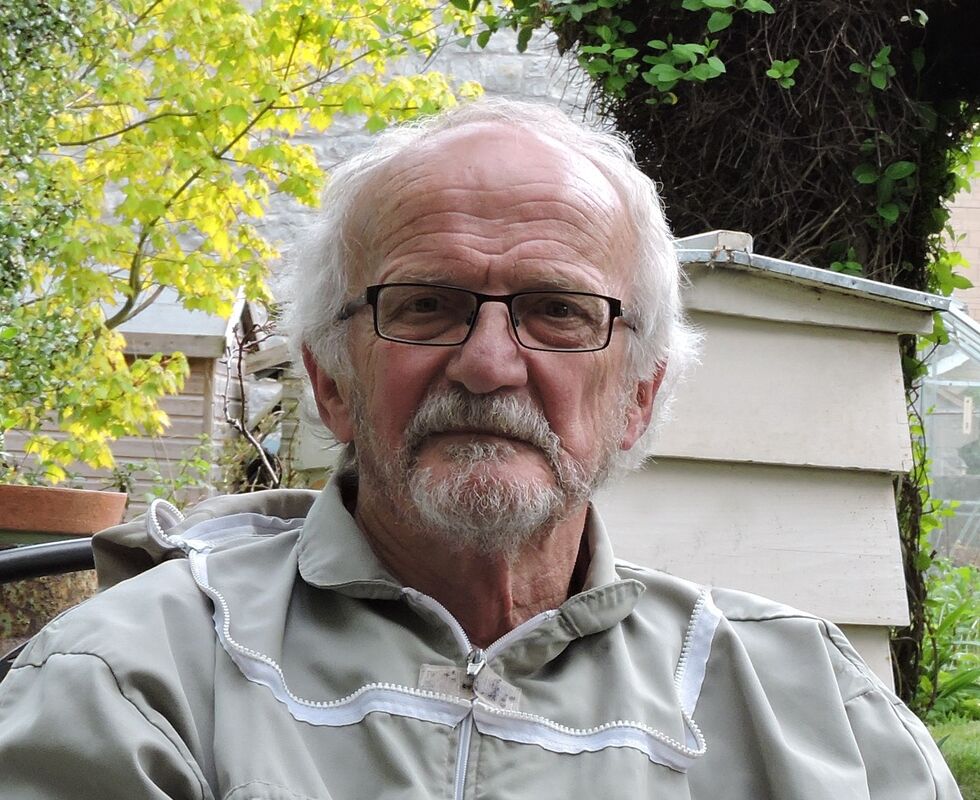
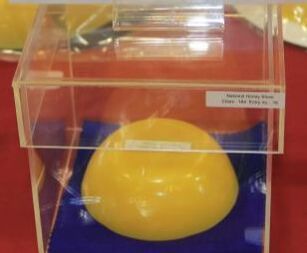
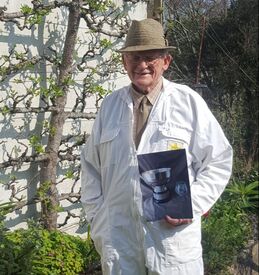
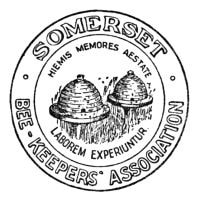
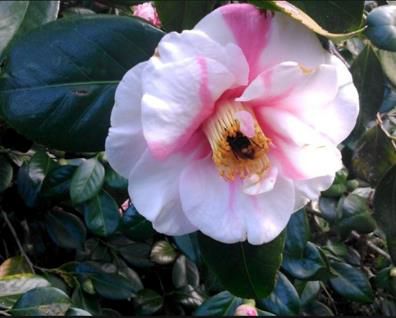


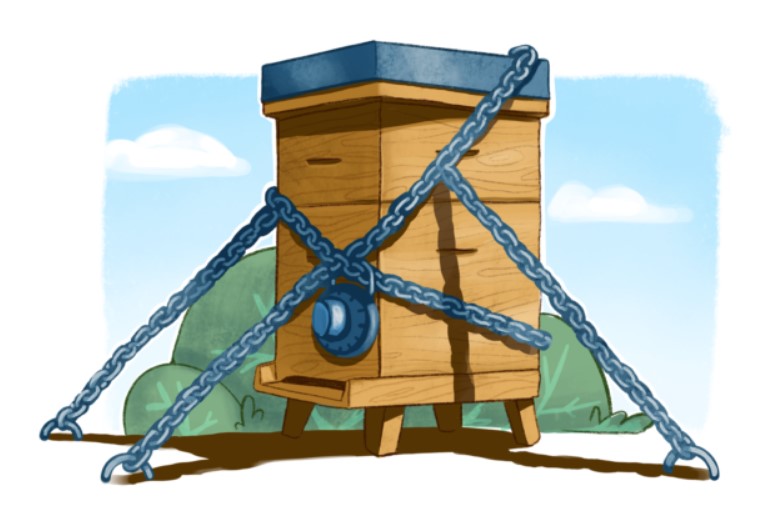
 RSS Feed
RSS Feed
